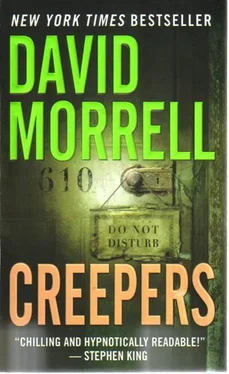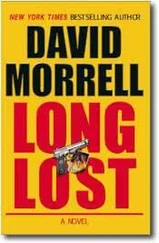Creepers are mostly between the ages of eighteen and thirty, intelligent, well educated with an interest in history and architecture, often employed in professions related to computer technology. They share a worldwide interest, with groups in Japan, Singapore, Germany, Poland, Greece, Italy, France, Spain, Holland, England, Canada, the United States, and several other countries. Australian groups are fascinated with the maze of storm drains under Sydney and Melbourne. European groups favor abandoned military installations from the world wars. U.S. groups are drawn to classic department stores and hotels abandoned when social decay led to an exodus from cities like Buffalo and Detroit. In Russia, creepers are obsessed with Moscow's once-secret multi-level subway system intended for evacuating Cold War officials during a nuclear attack. Deserted hospitals, asylums, theaters, and stadiums: Every country offers plenty of opportunities for urban exploring (see Mark Moran's essay, "Greetings from Abandoned Asbury Park, NJ," at www.weirdnj.com).
One of the first urban explorers was a Frenchman who in 1793 became lost during an expedition into the Paris catacombs. It took eleven years for his body to be discovered. As a character in Creepers indicates, Walt Whitman was another early urban explorer. The author of Leaves of Grass worked as a reporter for the Brooklyn Standard, where he wrote about the Atlantic Avenue tunnel. Touted as the first subway tunnel anywhere when built in 1844, it was discontinued a mere seventeen years later. Before it was sealed, Whitman trekked through it. "Dark as the grave, cold, damp and silent," he wrote. "How beautiful look earth and heaven again, as we emerge from the gloom! It might not be unprofitable, now and then, to send us mortals, the dissatisfied ones at least, and that's a large proportion, into some tunnel of several days' journey. We'd perhaps grumble less, afterward, at God's handiwork."
But Whitman didn't get the point of urban exploration. He saw the tunnel in negative terms. For a true devotee, however, the cold, damp, silent darkness of a tunnel or an abandoned apartment complex or a deserted factory is exactly the goal. The spooky attraction of the eerie past: I suspect that's what a much later explorer felt in 1980 when he uncovered that same Atlantic Avenue tunnel 119 years after it was barricaded and forgotten.
A major modern instance of urban exploration occurred recently in the Paris catacombs. Those catacombs are part of a 170-mile tunnel system beneath Paris, the consequence of quarry work that over many centuries provided building materials for the city. In the 1700s, some of the tunnels were used to store thousands of corpses when Parisian cemeteries exhausted their space. In September of 2004, a French police team on a training exercise found a fully equipped movie theater among the bones. Seats had been carved into the rock. A small adjoining cave functioned as a bar and restaurant, with whiskey bottles on display along with professional electrical and telephone systems. Another major example occurred in Moscow in October of 2002 when Chechen rebels seized control of a theater. After the military surrounded the building, a Russian urban explorer guided soldiers inside through a forgotten tunnel.
Some of this is adventuring in a basic sense. But I think that there are also psychological implications. As I note in Creepers, our world is so fraught with elevated threat levels that it makes a lot of sense to retreat to the past. Old buildings can be a refuge, drawing us back to what we imagine were simple and less stressful times. In my youth, the deserted apartment complex provided an escape from the turmoil of my family. I was a time traveler, finding sanctuary in a past that appealed to my imagination and in which there were never any arguments.
In my youth. As an adult, I now have a different perspective, one with deeper, less comfortable implications. To me, old buildings have become like old photographs. They remind me how swiftly time passes. The past they evoke draws attention to my ultimate future. They are an opportunity for reflection.
I recently had the chance to visit the high school I attended more than forty years ago. A part of it had burned to the ground. Most of the remainder has been boarded shut for a decade. When I entered, a hazard team was checking for asbestos, lead paint, and mold, prior to the school's renovation. It's amazing what years of disuse can do, especially when broken windows allow rain and snow to intrude. In disturbingly silent hallways, the hardwood floors were buckled. Plaster drooped from the ceilings. Paint strips hung from the walls. But in my memory, everything was clean and well maintained. I envisioned students and teachers filling the noisy corridors. The trouble is, many of those students and teachers have long since died. In the midst of decay, my imagination conjured youth and the promise of hope, gone just as the school would soon be gone.
I wonder if deserted buildings are vessels to which children bring a sense of wonder and adults bring their unacknowledged fears. When I obeyed the compulsion to visit that wreck of a school, was I unintentionally confronting my own mortality? But my visit had a safety that urban exploration doesn't. Infiltrating forbidden sites, investigating the decay of the past, creepers flirt with danger. Any moment, a floor might give way, a wall topple, or a stairway collapse. Creepers challenge the past to do its worst. With each successful expedition, they emerge victorious from another confrontation with age and decay. For a handful of hours, they live intensely. Obsessed with the past, perhaps they hope to postpone their inevitable future. Or perhaps they feel reassured that the past lingers palpably into the present and that something about their past might linger after they're gone.
When my fifteen-year-old son Matthew was dying from bone cancer, his most plaintive statement was, "But no one will remember me." Memento mon. Maybe that's what urban exploration is all about. Is an obsession with the past another way of hoping that something about us will linger, that years from now someone will explore where we lived and feel our lingering presence? That phonograph album I found. The distant hiss I listened to just as someone listened to that same platter decades earlier. "Those Wedding Bells Are Breaking Up That Old Gang of Mine." It's a song about time, which is basically what all stories come down to. In the lyric, a young man says he's got a lonesome feeling. But as I think back to that apartment complex and the deserted rooms I wandered through- the abandoned sofas, chairs, lamps, and pots-I didn't feel alone.
– David Morrell Santa Fe, New Mexico
Visit the following Internet sites for more information about urban exploring. They are representative of thousands of others. Some have links to other sites.
www.infiltration.org www.jinxmagazine.com www.urbanexplorers.net
www.forgotten-ny.com (To find a similarsite devoted to your area, try an Internet search by typing the name of your region and putting "forgotten" or "abandoned" in front of it.)
http://users.pandora.be/a-p/index.html http://catacombes.web.free.fr www.caveclan.org
www.deathrock.net/ariadne/ruins.html (Look in "Amusement Parks" for photographs of Asbury Park, then and now.)
www.weirdnj.com (Mark Moran's Asbury Park essay is in "Abandoned.") http://urbanexploration.org/2005/sitemapgraphical.htm

David Morrell is the award-winning author of First Blood, the novel in which Rambo was created. He was born in 1943 in Kitchener, Ontario, Canada. In 1960, at the age of seventeen, he became a fan of the classic television series Route 66, about two young men in a Corvette traveling the United States in search of America and themselves. The scripts by Stirling Silliphant so impressed Morrell that he decided to become a writer.
Читать дальше













